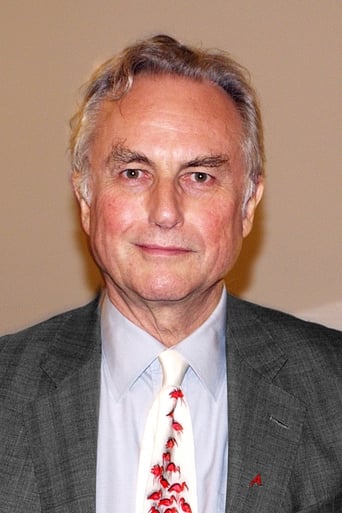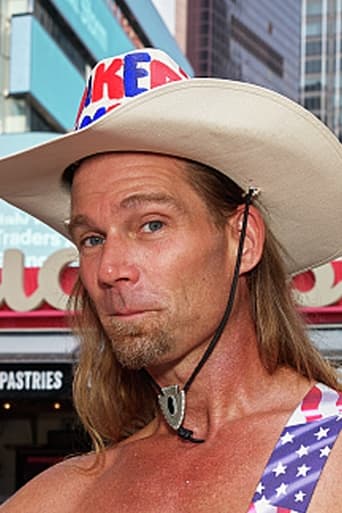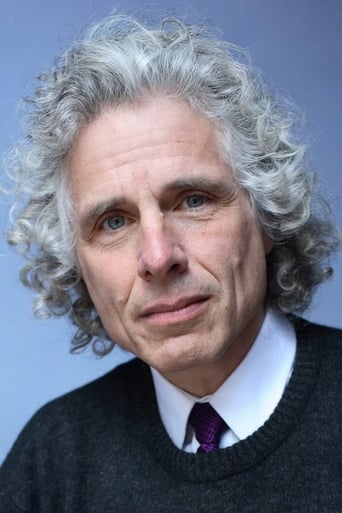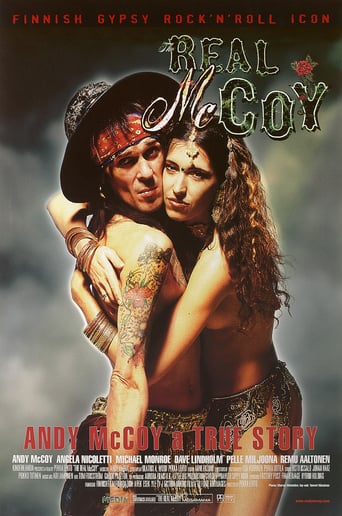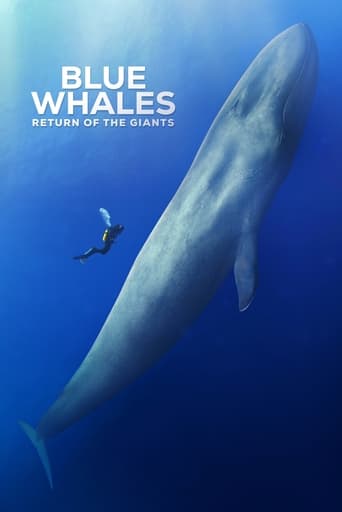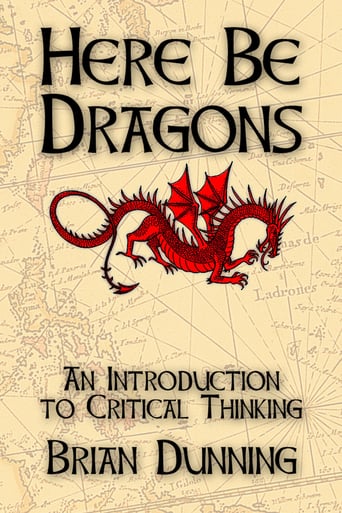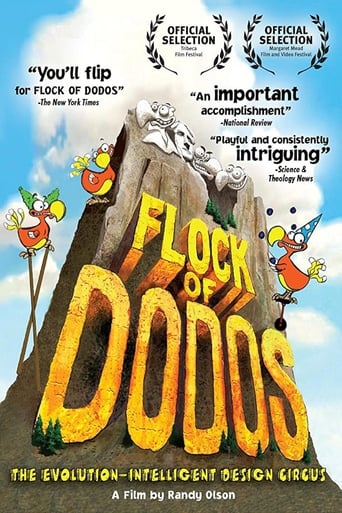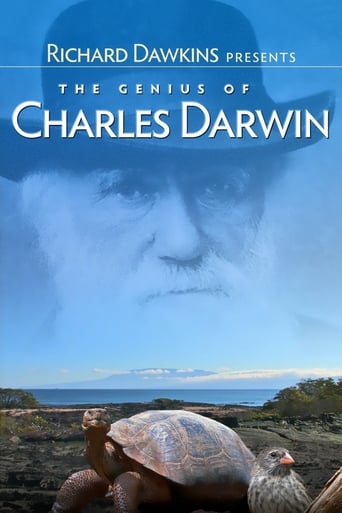

The Genius of Charles Darwin (2008)
A documentary series from Channel 4, hosted by professor Richard Dawkins, well-known darwinist. The series mixes segments on the life and discoveries of Charles Darwin, the theory of natural selection and evolution, and Dawkins' attempts at convincing a group of school children that evolution explains the world around us better than any religion.
Watch Trailer
Cast
Similar titles
Reviews
Pretty good movie overall. First half was nothing special but it got better as it went along.
It’s not bad or unwatchable but despite the amplitude of the spectacle, the end result is underwhelming.
The story, direction, characters, and writing/dialogue is akin to taking a tranquilizer shot to the neck, but everything else was so well done.
Like the great film, it's made with a great deal of visible affection both in front of and behind the camera.
Oxford biologist Richard Dawkins -- forthright, candid, firm, but never angry -- confronts religious believers of various types, from grammar school teachers to the Archbishop of Canterbury.I've always admired the Archbishops of Canterbury. They're cool. In the sixties, the Archbishop had a carefully styled combination haircut blending Eton with the Beatles. This one has a professorial beard and sounds like Roger Moore playing James Bond. Can you imagine the Pope with a pony tail? I'm afraid you won't learn much about the details of Charles Darwin's "theory" of evolution. You learn about Darwin's life and his struggles with his own beliefs, but as Dawkins wanders from Kenya to New York and London, he doesn't tackle the problems that evangelicals keep raising, although the problems themselves have already been solved -- the eye of the octopus and the little tail of the flagellates. That's not Dawkins' goal.His job is to convince us that religious belief, especially in the Bible, is a lot of nonsense. I agree with everything Dawkins says, almost. As an anthropologist I would have to point out that in science probability never achieves unity. There must always be some slight doubt about what's going on, otherwise science is no longer science. That's why my walls and shelves are decorated with icons representing all sorts of religions -- a mezuza, a crucifix, the dancing Shiva, two unnamed Hindu gods, a statue of Huizilpotchli, and a stone from a Cheyenne sacred circle in Montana. One never knows.But, as far as the Bible goes, Dawkins has it all over the evangelicals who have created museums in which people and dinosaurs are contemporaries. Dawkins doesn't say so, but the Bible never makes such a claim. The earth is believed to be about 6,000 years old (instead of about four billion) because Bishop Ussher in the 17th century added up all the "begats" in the Bible and determined that the planet was created at 9 AM Oct 3, 4004 BC.The fact that so many people are fully committed to this delusion suggests the nature of the stone wall that poor Richard Dawkins is batting his head against. How do you challenge an axiom? I wouldn't look to this documentary for a biography of Charles Darwin or for an explicit explanation of how natural selection works. It's pretty brutal, by the way, and you see lions catch antelope in mid air. Yes, it's bleak, Dawkins tell us, before he claims that cut-throat competition and eugenics are a misapplication of Darwin's ideas. Can he be so sure? He also doesn't address a question that's been lingering in my own mind for some time. Andrew Greeley -- the American sociologist, novelist, and priest -- argued that politics were responsible for less human misery than religious conflicts. We can see the dynamics at work in the Middle East today, if we bother to look and understand. Come to think of it, though, priests aren't exactly in the forefront of the anti-science movement. In the early years of the last century there was Teilhard de Chardin, a French priest, philosopher, and human paleontologist. De Chardin called humans "the thinking part of the earth," with which Dawkins would probably agree. De Chardin also had a hand in many important goings on in human evolution. He was involved in the discovery of (gulp) Piltdown man, for instance. It may be that religion's hold over us should be loosened, not just because it's contradicted by science but because it's dangerous. "My tribe is honing knives to use against your tribe," as the poet wrote. Yet where would humans be without their myths?
Very interesting interviews of both Darwinists and Creationists. Poor cinematography though with only one cameraman making those dizzying shifts from one person to another. I have seen videos by ID proponents, some of them cinematically well done with time lapse sequences, artistic dissolves,frame inserts and obviously shot with multiple cameras at various angles. They have more money?I liked the interviews with the physician and medical researcher, Dr. Pike, with the Archbishop of Canterbury, His Grace Rowan Williams and the philosopher of science, Daniel Dennet. I question though Dawkins' insistence on putting down belief in the supernatural instead of just focusing on the probability of natural selection versus the literal interpretation of Genesis which the Archbishop also refutes citing unnamed sources dating back to the second century. I wish His Grace had mentioned names since I thought that St. Augustine in the 5th century was the first to refute those who always interpreted bible literally. Dawkins came very close to being boorish with Concerned Women of America leader, Wendy Wright, as he sought to demolish the idea of belief in a supernatural Creator. But he was very tame with that grizzly Australian preacher who came up with ridiculous arguments about the alleged absence of evidence for natural selection and even stooping to ad hominem arguments against Darwin implying that he became unbalanced with the death of his eldest daughter at a very young age. Can't fault Dawkins for blowing hot or cold depending on the interviewee. After all the preacher was surrounded by his supporters while Ms. Wright only had a female receptionist. Safety first. I wish we had a strapping, tobacco spitting, ham fisted Darwinist to interview feisty Creationists. Dawkin's exegesis of the phenomenon of kindness and benevolence among humans as offshoots of gene selfishness as exhibited in some animals which care and protect their kind as a behavior inherited by humans is somewhat thin in logic and probability. The idea is obviously cadged from Desmond Morris who wrote The Naked Ape series who compared the socialization of apes, which must have also existed among early hominids, to that of humans and postulated that the former was transmitted and developed in higher forms among humans. Likewise, Dawkins' substitution of human yearnings for immortality and the numinous with satisfaction and wonder at the mere fact of existence is ultimately unsatisfying. Jung and his followers like Campbell would certainly disagree with him on these points. In any case, personally, I do not think that natural selection alone can account for the diversity and intricacy of life. I tend to lean towards symbiogenesis which, unlike natural selection, focuses on cooperation among organisms rather than on competition. One who is uncomfortable with the theory of evolution because of its premise that natural selection is random, and therefore, undirected would do well to consider orthogenesis as an alternative with its emphasis on linear (as opposed to random)development of species which leads to the conclusion that evolution proceeds on a teleological basis. That means that the development of life ultimately has a purpose. I apologize to my readers for using "telescoping words" that look like jargon. It was done to make this review brief and also to encourage them to look them up to deepen their understanding of the issues involved. Several interviewees are left out in the list of the cast here like His Grace Rowan Williams, Archbishop of Canterbury, philosopher of science Daniel Dennet, Concerned Women of America president, Wendy Williams, that Australian creationist preacher, the science teachers (in England?) particularly that young woman who was cute and quite incisive in her comments. The automatic editing on this site is faulty as it insists that words like "literalist" and the "hominem" in "ad hominem" are mistakes. It needs updating as it does not recognize the term "symbiogenesis."
On the one hand, it's always great to see the rare occurrence of a proud atheist on the television (at least, on this side of the pond...), and it is delightfully refreshing to see someone give no more deference to religious beliefs than any other belief, directly challenging them.On the other hand, it's frustrating that Dawkins shows us none of the mountain of evidence that we know exists about evolution, and takes on none of the supposed counter-evidence pushed by charlatans.I think if you have a mini-series documentary, you have an obligation to actually accomplish more than simply state your side, even if it is the right side. You have to actually show evidence. Now, three episodes is hardly enough time to prove anything, but it should be enough to not be easily dismissed. Sadly, that goal is not met.I saw this because I wanted to see the genius of Charles Darwin, and I feel I didn't see it.7/10 because this sort of thing is so rare, but no higher because the goal was not met.
As someone incredibly smart and constantly pondering the apparent clash between faith and science, I should be the perfect viewer for this. Alas, it seems I am too smart...First off, the score (4) is a verdict on the series, not on the merits of prof. Dawkins as a scientist - he is obviously at the top of his field. Would that he would stay in it. For this supposed celebration of Charles Darwin actually has more important goals: 1) To present not Darwin but Dawkins, the clever but not heartless - Heaven forfend! - thinker. The man on a Lifelong Quest for truth, who unflinchingly faces the implications that scientific truth casts before us. The series is filled with images of him walking, talking, facing the camera or gazing elsewhere. And, more often than not, scowling at the disturbing fact that not everyone is as rational as he. Frankly, ought the title of the series to have been changed?2) To once and for all establish the indisputable fact that religion is always wrong and can at best be tolerated - if it doesn't interfere with science. Dawkins has never made his impatience with religious belief a secret and this is yet another bout in the boxing ring, intended to provide the definitive knockout.It fails in both regards. While comfortably at home in the science lab or when summing up his evidence, Dawkins seems almost childlike when trying to describe the belief in Something More, rigidly unable to look past the scornful caricature he prefers. He also, for some reason, resorts to cheap tricks. This is annoyingly obvious in the "confrontations" where he either takes on lightweights who are easily dismissed (in the poorest Penn and Teller Bullsh*t tradition) or, when talking to someone actually able to speak for themselves, he (or the producer) feels impelled to fade out the answers and superimpose Dawkins's own comments in a self-congratulating voice-over. It's so clumsy that he looks as if he has something to hide. He probably doesn't, he just has no patience with those who disagree with him and seems less curious in other viewpoints than eager to shoot them down and swiftly move on. The most important definition of a scientist is the thirst for knowledge, but when it comes to faith Dawkins is absolutely certain that he has nothing more of value to learn. He would hardly dispute this statement, but it makes this "quest" seem as labored as a morality play. His guests are there to prove his point, whether or not they agree with him.He is, in short, just as confrontational as Michael Moore taking on a favorite cause, but with this difference: he has no sense of humor. When he dryly describes the enormous empathy he feels for others when they suffer, the effect is rather comical but surely unintended.Let's face it: religion has survived Darwin's evolution for a very long time. If he actually means to dismantle it, he will have to come up with something better than this half-assed diatribe.That said, the parts about Darwin himself are interesting. Perhaps there should have been more in that vein. What with the title and all...
